We love family at Plugged In. Being a part of Focus on the Family, it’s part of our whole mission.
But not everyone is born into the perfect family from the get-go. Some families are built. And when children and parents are joined through the process of adoption, the results can be truly transformative.
I know this personally. My sister was adopted. So was my wife. I see every day how wonderful adoption can be. And Plugged In is fortunate to work with people who spend their days encouraging adoption and nurturing the families that take that step.
Focus on the Family isn’t the only entity that sees the beauty in these families. Sometimes, Hollywood does, too. But as can be the case with fostering or adoption itself, you sometimes need to wade through a little bit of mess to get there.
We asked our Advocacy for Children Department—supported by Dr. Sharen Ford, who has been involved with foster care for more than 30 years—to help us out with this list of films. And the team offered these thoughts:
[QUOTE] “Each November, during National Adoption Month, we have the opportunity to celebrate adoptive families and the children who have found their forever homes from foster care. It’s also a time to reflect on the more than 50,000 children in the foster care system in the U.S. who are legally available for adoption—and to consider, prayerfully, how we might respond. Whether that means exploring adoption yourself or supporting those who have, your involvement can make a difference.” [END QUOTE]
With the help of FOTF’s Advocacy for Children team, we compiled eight films that showcase the breadth and beauty of adoption and the miracle of the not-so-typical family. None of these films are perfect—be sure to check out the Plugged In review before flipping any of these on for your family—and some films are more problematic than others. But all, I believe, have something good to say about adoption.
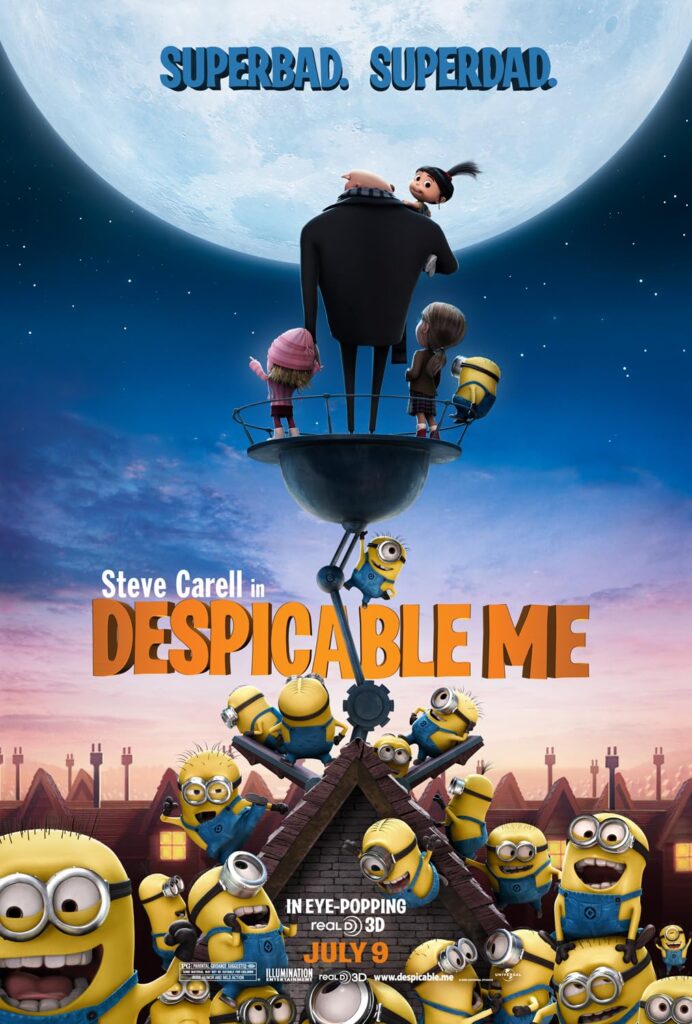
Despicable Me (PG, 2010)
Supervillains have no interest in family. Gru—the needle-nosed evildoer at the heart of Despicable Me—knows this oh so well. But when Gru resolves to steal the moon, he decides that a critical part of his nefarious plot is to … adopt three little girls? Sure, it’s an unusual first step. But supervillains gotta do what supervillains gotta do.
Well, Gru’s changed quite a bit in the years since the first Despicable Me film rolled out. How could such a thing be possible? We need look no further than those three little girls. They turned this big, bald baddie into a surprisingly sweet father. They taught him that familial love is way better than a shrunken chunk of lunar rock.
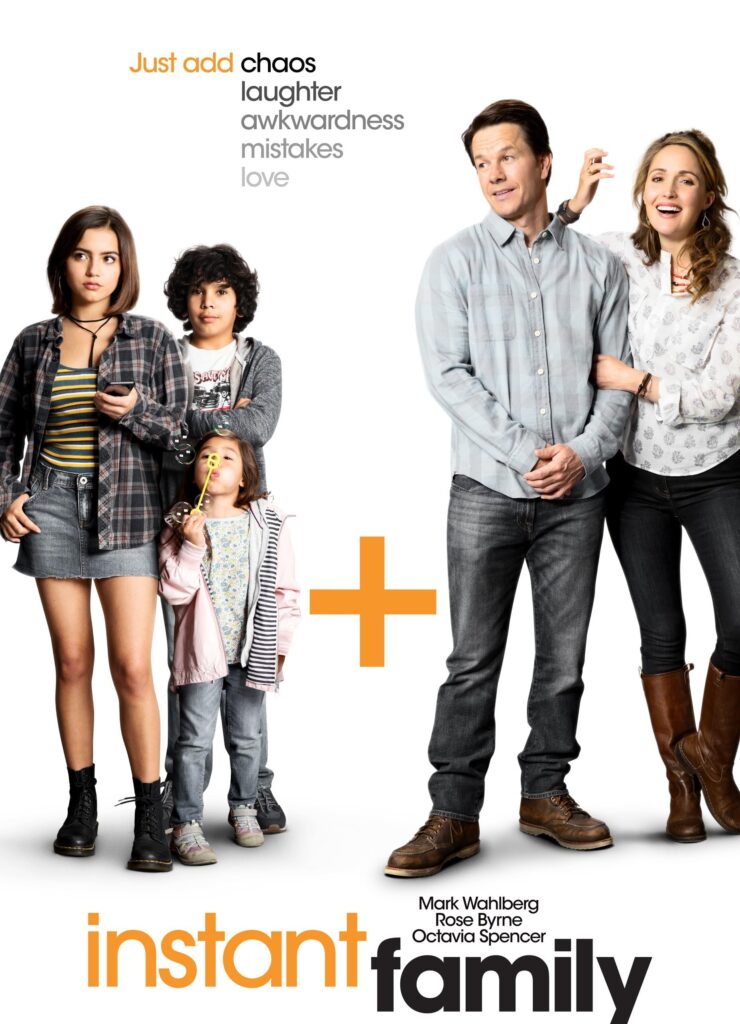
Instant Family (PG-13, 2019)
Of course, adoption isn’t always the result of nefarious moon-swiping plans. Sometimes parents actually plan to foster a child. Or three. So it was with Pete and Ellie, a couple that got so wrapped up in flipping houses that they forgot to start a family. But they ultimately decide to foster a trio of kids, including a smart-mouthed 15-year-old, that everyone else was avoiding.
Some stories about adoption and fostering sidestep some uncomfortable truths: The kids who need new homes often come out of really difficult old ones—and sometimes with a bunch of problems of their own. Instant Family hits that truth head on, and it does so with warmth and humor.
Starring the notoriously foul-mouthed (but deeply Catholic) Mark Wahlberg, Instant Family is as messy as the family it portrays. The language is unremitting, and it has a bit of LGBT content, too. But this—perhaps more than any film on this list—is one that real foster parents can point to and say, “Yep, I can relate.”
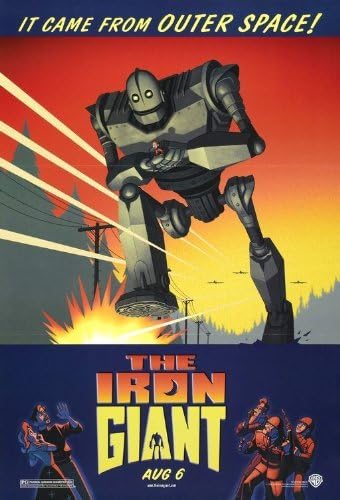
The Iron Giant (PG, 1999)
Who knew that gigantic, death-dealing robots could use a family? Young Hogarth Hughes, that’s who. Hogarth, the curious son of a single mom, discovers just such a robot deep in the forest near his home. The iron giant has lost its original wartime programming (thanks to a mighty jolt of electricity, it would seem) and is a little aimless. Hogarth steps in and begins teaching the robot a better way.
That’s what foster parents and adoptive moms and dads are called to do, too—especially if their new family members have come out of some tough situations. We teach our children better ways to think, to act, to deal with others. It’s not easy. And outside forces can sometimes get in the way—just as it happens in The Iron Giant. But hopefully, we all learn what the Giant does: “We are who we choose to be.”
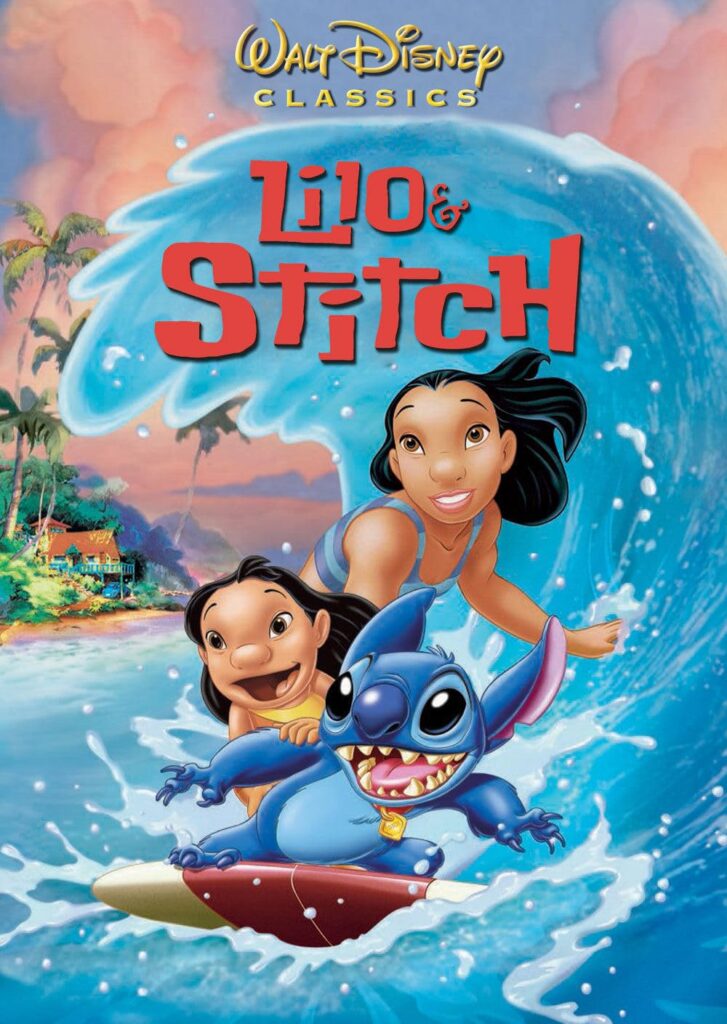
Lilo & Stitch (PG, 2002)
Nani and Lilo lost their parents not so very long ago. Nani’s now faced with raising her little sister alone—and boy, she could use some help. So, convinced that Lilo could use a nice, cuddly companion, the sisters head to the local dog shelter and, unknowingly, adopt a truly galactic terror: Experiment 626.
The original Disney cartoon, according to FOTF’s Advocacy for Children folks, takes us into the world of kinship care: “Kinship placement is when a family member adopts a child from foster care. And while Lilo’s story may be rougher than most (since she is dealing with aliens), it can happen.” The newer live-action version takes a different, and perhaps more controversial, tack. But both movies remind us that everyone can use a good family. Even toothy, blue extraterrestrials.
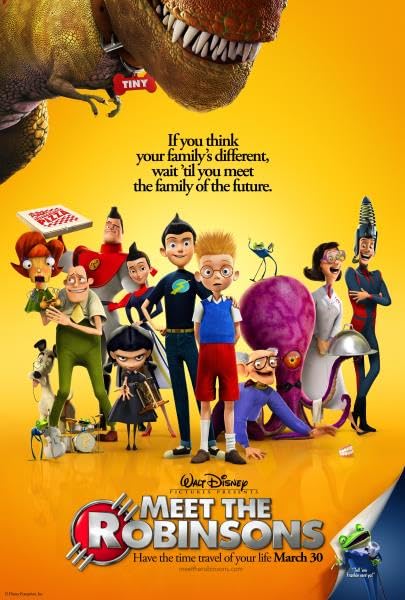
Meet the Robinsons (G, 2007)
Nerdy 12-year-old Lewis has been trying to get out of his orphanage for ever so long. But after more than a hundred adoption interviews go nowhere, he decides his best bet is to find his birth mother instead—through a marvelous invention of his own design. Alas, the invention is so marvelous that it draws some unwanted attention. But it also attracts a young lad from the future: Wilbur Robinson.
“This is one of my favorite movies,” writes Danielle Pitzer, a Director in the Advocacy area. “While the animation is a little dated, this feel-good story highlights how we’re all a little odd, but when we come together through adoption and love, we can make something great. Do note that leaving an infant at an orphanage no longer happens. If a woman needs to find a safe place for a newborn, she can find a Safe Haven Box that protects her and the baby.”
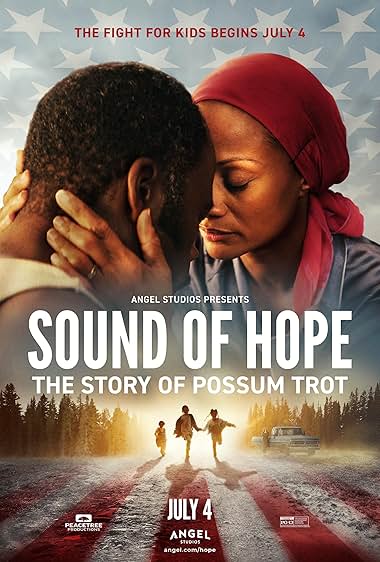
Sound of Hope: The Story of Possum Trot (PG-13, 2024)
Donna Martin grew up with 17 brothers and sisters—and what a glorious upbringing it was. So when Donna’s mother dies suddenly, Donna sinks into despair. What brings her back? The idea of adopting needy children and creating a big family, just like she had. “I wanna love like Momma did,” she tells her husband.
The Story of Possum Trot is based on Rev. W.C. and Donna Martin’s dive into adoption—one that took their whole church with them. Ultimately, the church’s congregants adopted 77 needy kids. The film reminds us that many foster children come from traumatic pasts, and it doesn’t sugarcoat the trials that are sometimes a part of the adoption process. But it also stresses how worthwhile the journey can be.
“I’ve had the wonderful opportunity to travel to Possum Trot, Texas, and visit Bishop Martin, his wife and the members of his church,” says Dr. Sharen Ford. “It was a joy to meet many of the families who welcomed children from foster care into their hearts and homes through adoption. Each story was different, as I listened to them share, they all voiced that God had called them, and they knew that He would be with them on this journey.”
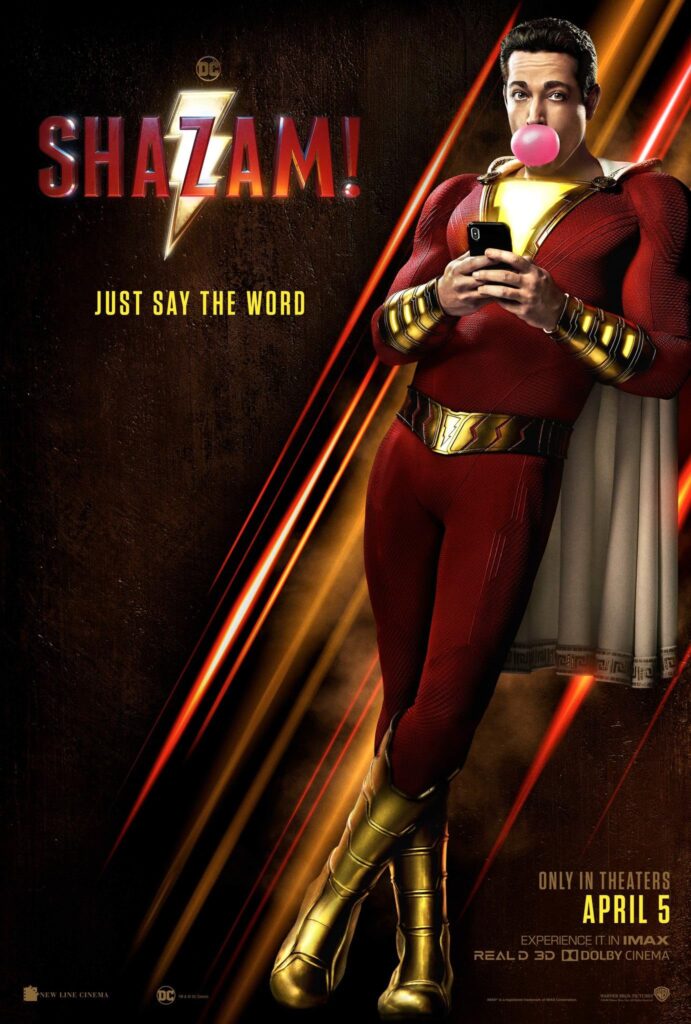
Shazam! (PG-13, 2019)
There’s no guarantee that being adopted will turn you into a superhero. But a surprising number of crimefighters found loving homes in this way. Spider-Man learned from his guardian, Uncle Ben, that “with great power comes great responsibility.” Superman landed in the Midwest backyard of Jonathan and Martha Kent, and they raised him to be a guardian for truth, justice and the American way. But the most on-the-nose representation of a superhero-fostering family comes in the form of Billy Batson’s foster group home in Shazam. And even though Billy doesn’t appreciate this chaotic clan at first, he learns to love it.
I highlighted Billy’s group home in my review. It’s run by “Victor and Rosa Vasquez—a conscientious couple who are raising a bevy of boisterous foster teens and children. They don’t see themselves as stopgap caretakers, but parents, and they love their children fiercely.” FOTF’s Advocacy for Children team says the film highlights a truly healthy group home “and may spark conversation on how to support one near you.”
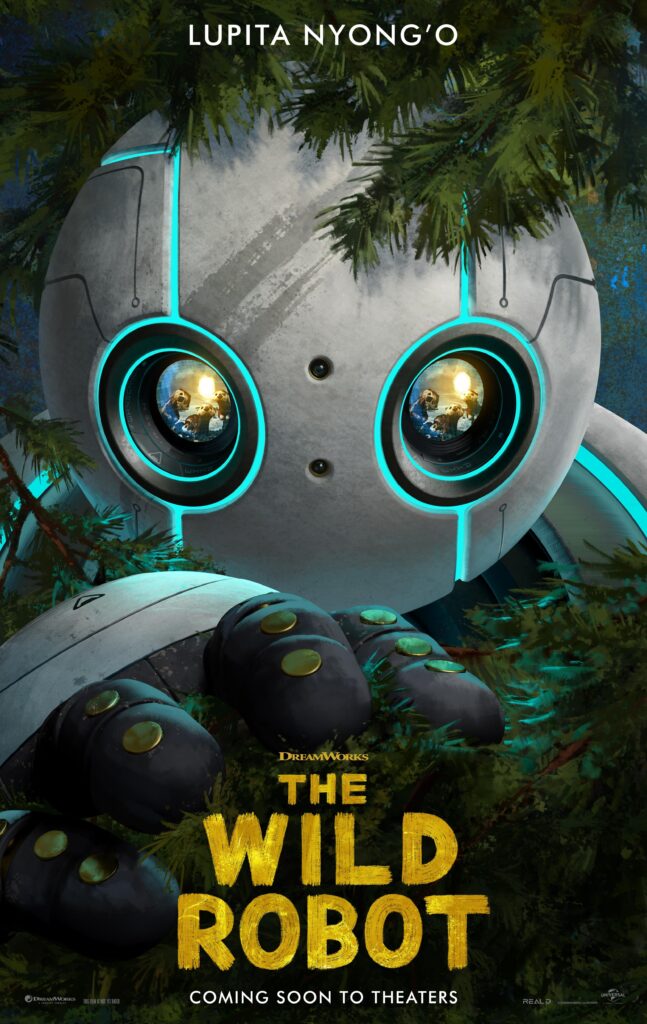
The Wild Robot (PG, 2024)
When a well-meaning robot crashes on an island full of animals, she feels a little adrift. Roz is built to help humans, after all, but there’s no human to help here. However, after she plays an unwitting part in a tragedy, a just-hatched gosling unexpectedly imprints on her. And Roz finds a purpose: She becomes a mother.
The Wild Robot was one of my very favorite films from 2024, and its messages will resonate with just about any mom or dad. But we also see the tension that comes from raising a child who may look very different from you, and who comes from a background that might be poles apart from your own. The movie reminds us of what we all know: Love is the brightest, strongest and greatest gift we can give someone.
Find out more about foster care and the part that you can play in helping a child to find permanency: https://www.waitnomore.org/.
If you would like to see more movie or book offerings about adoption, foster care and the value of life, check out this article by Focus on the Family: https://www.focusonthefamily.com/pro-life/top-pro-life-movies-and-books-for-the-whole-family/.



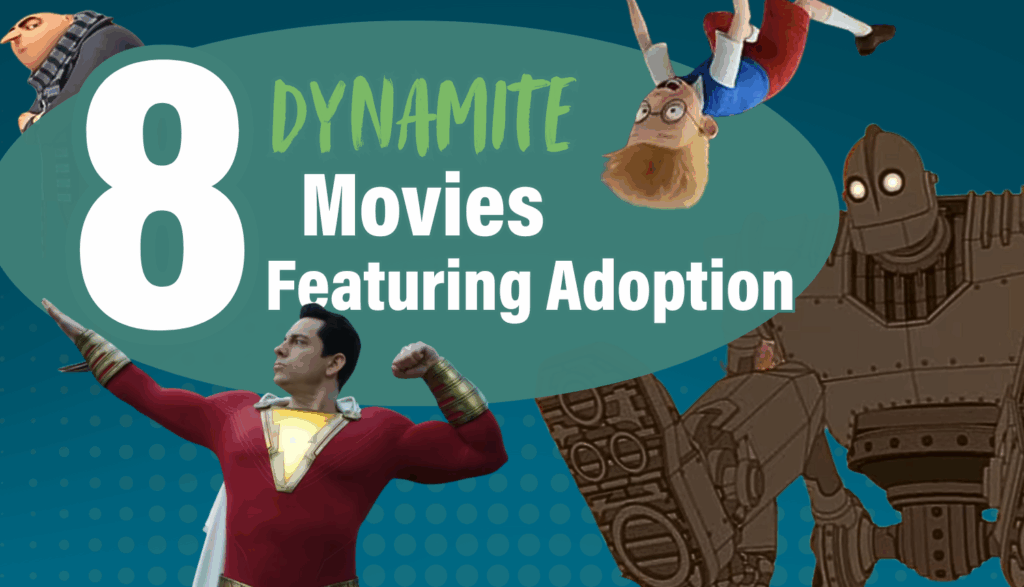

4 Responses
Despicable Me and Instant Family are by far the best films on the list, but I would also add the adorable Pro adoption baseball movie Angels in the Outfield.
As an adoptee, I’m very careful about glamorizing the concept thereof. Yes, I had a wonderful upbringing growing up, and I will always be thankful for my found family, but I also feel like the very concept somewhat disincentivizes us from addressing the root causes of what leads to the necessity of adoption in the first place. Poverty? We can fix that. Drug use? We can help those people. War? We as Christians are a big-enough global influence to where, if we came together to minimize the very concept of war, it would soon be a thing of the past. There are financial resources available for adoption, sure, but as a longtime friend of mine pointed out, who also grew up in a Christian home, why can’t we just direct those same financial resources toward the original families instead?
Also I thought the first ‘Shazam’ was a very funny movie, but it’s also very vulgar, and I thought it was somewhat more intense than most superhero movies claim to be, so I wouldn’t watch this with young children.
Yes, we could make it easier for moms and dads to keep their children. They need to allow 600 sq. ft homes to be built again. They need to make it easier for children in bad schools to have alternatives. Our society needs to stop promoting addictive drugs, affairs, and slacking in school/that math is too hard for most people.
I met an older woman who told me that there used to be a highschool for teen moms in our town when she was a teen. They would let the teens bring the babies to class with them and also teach them a trade so they could support a family when they graduated. I think we need more things like that, in addition to continuing Social Security for widowers and widows with children.
The Blind Side.